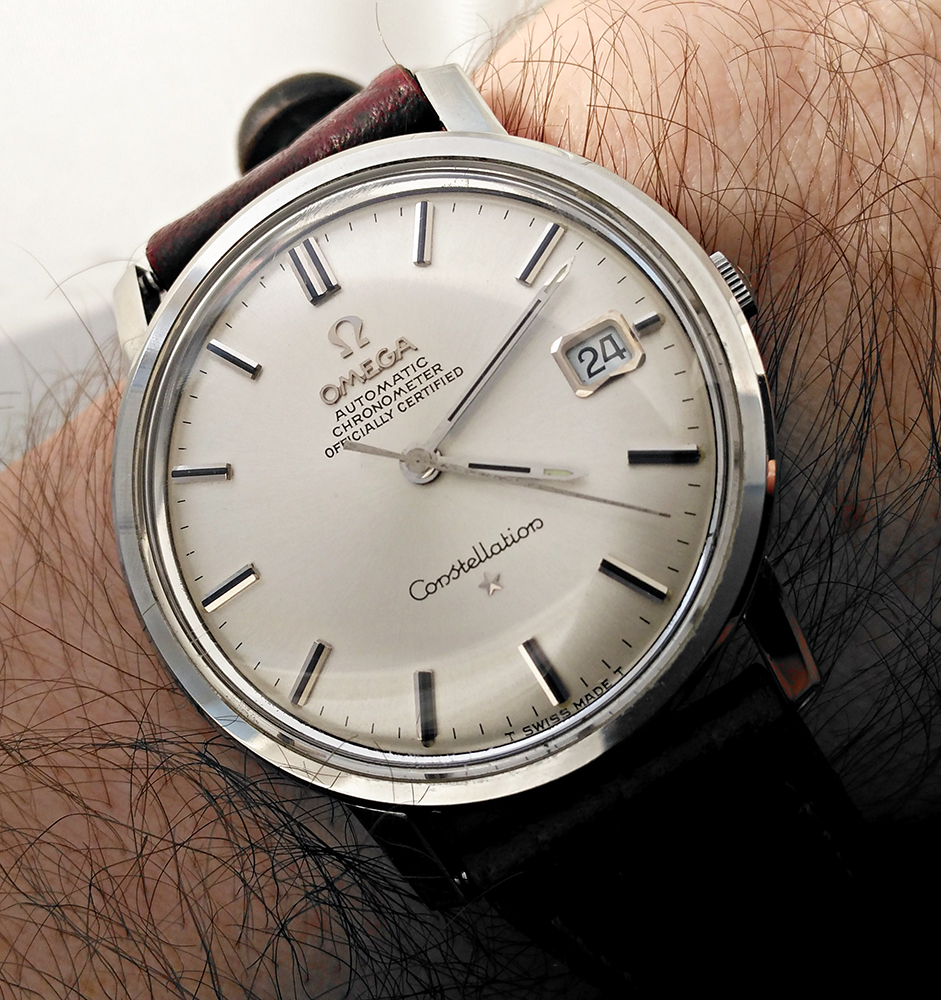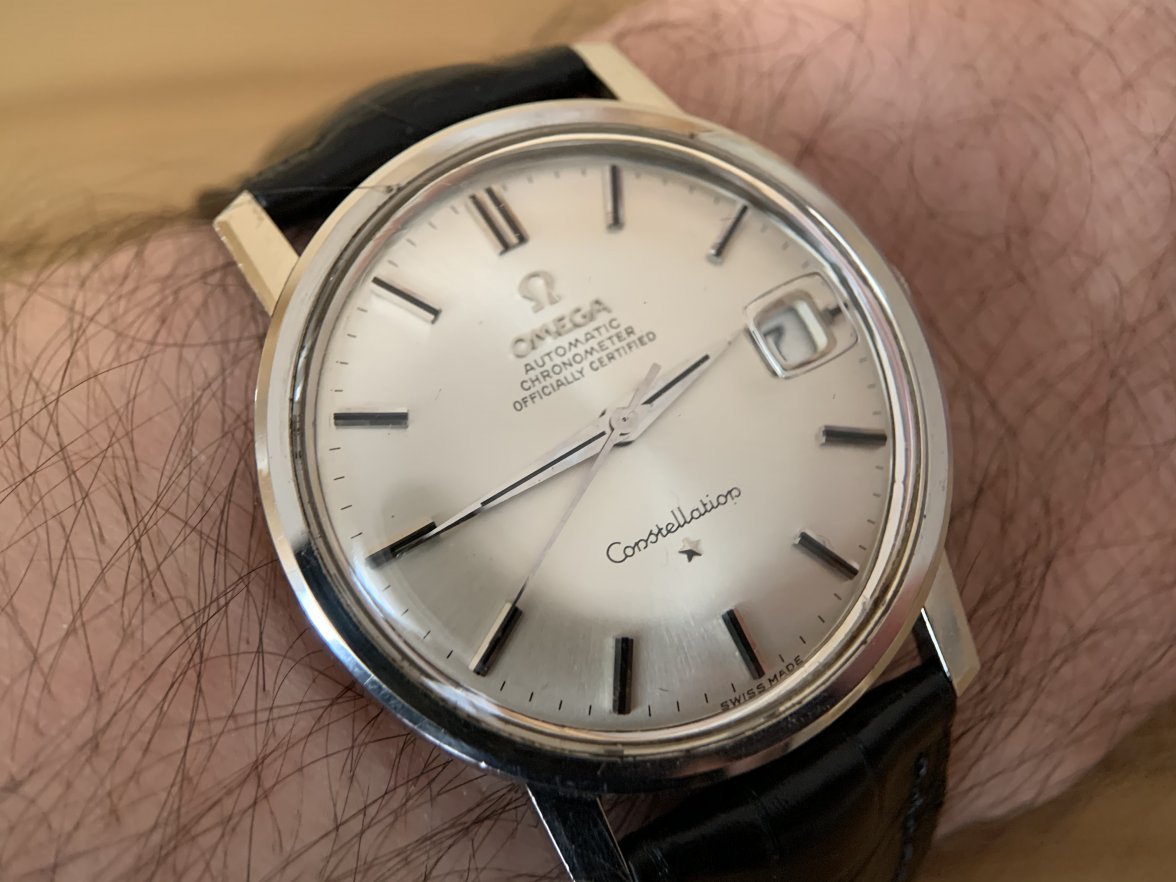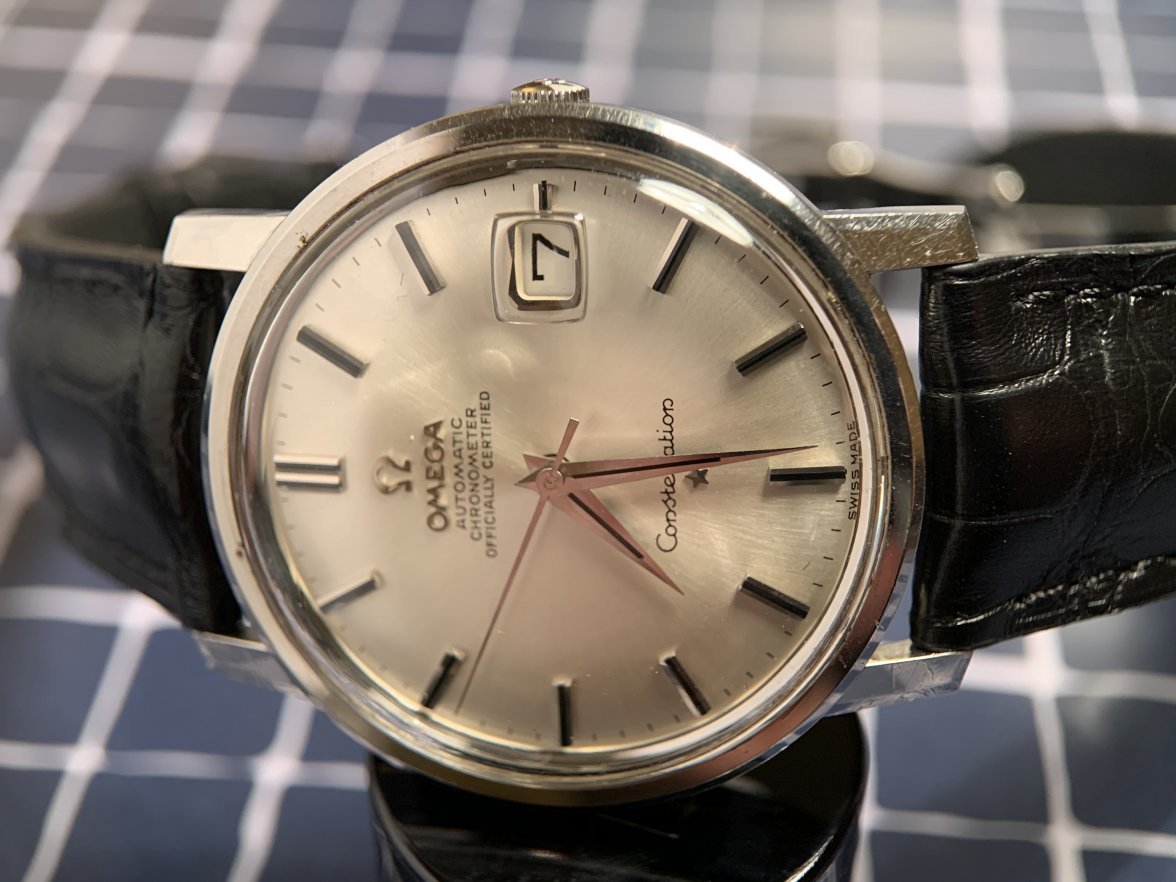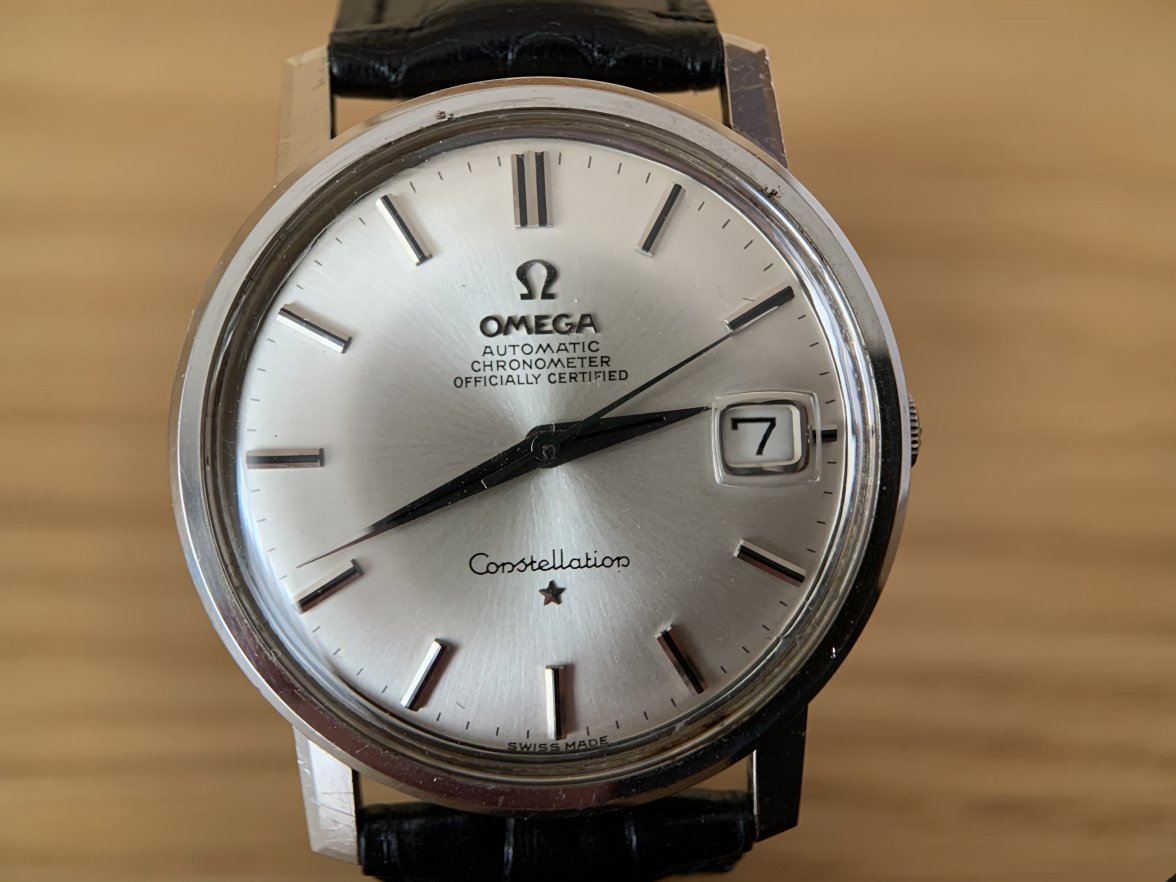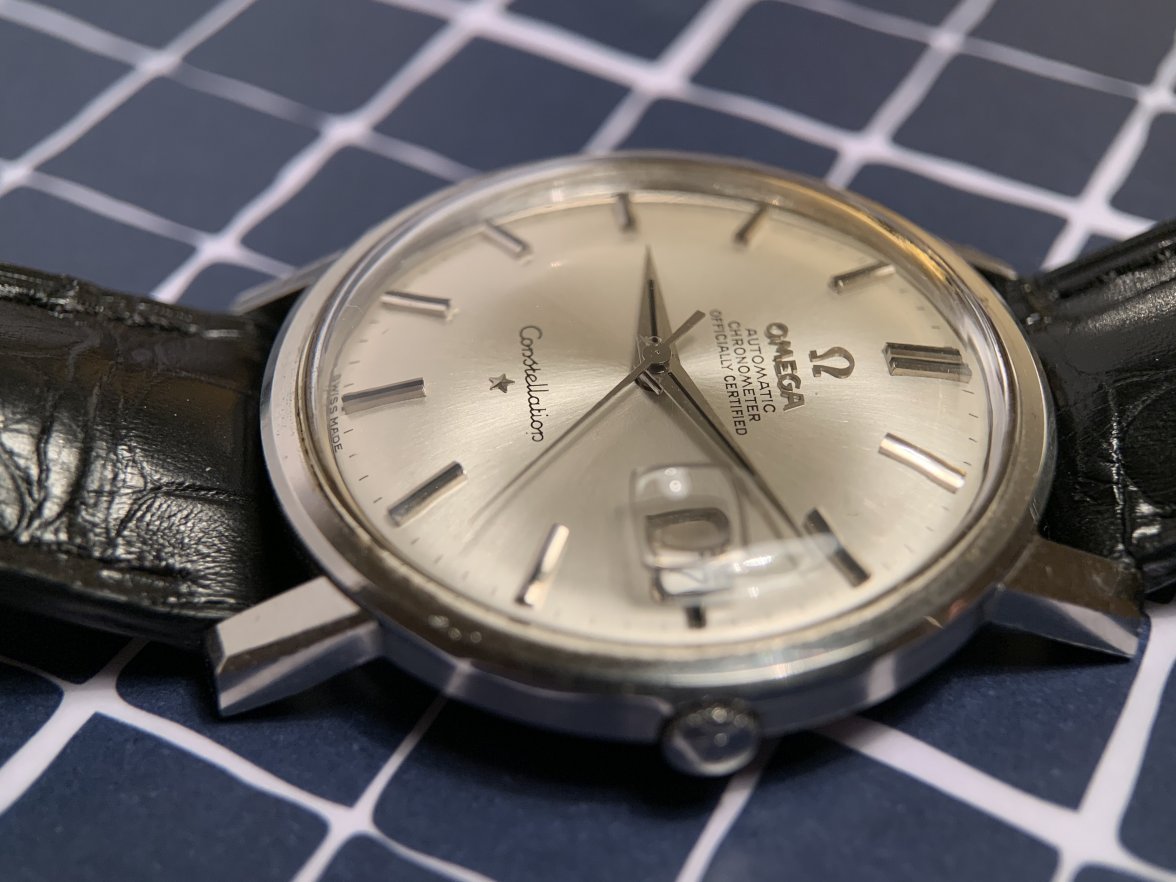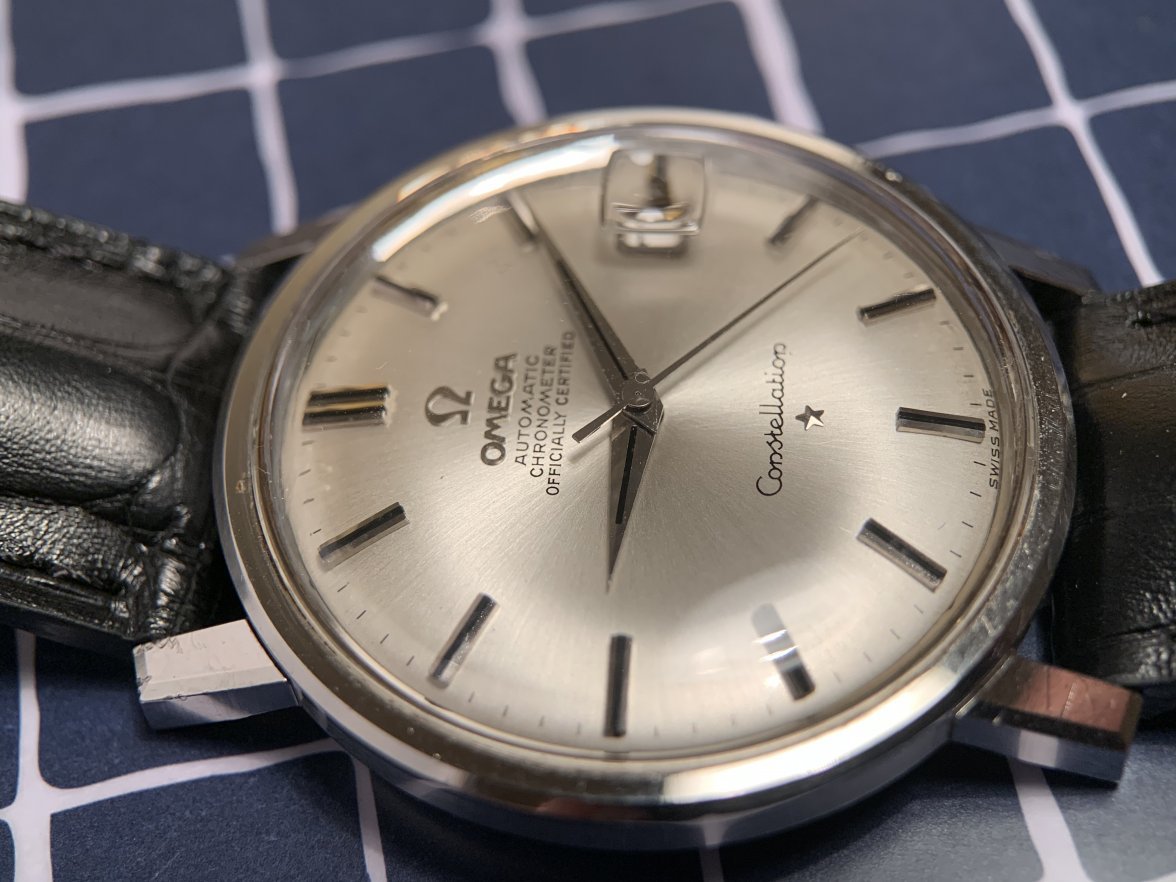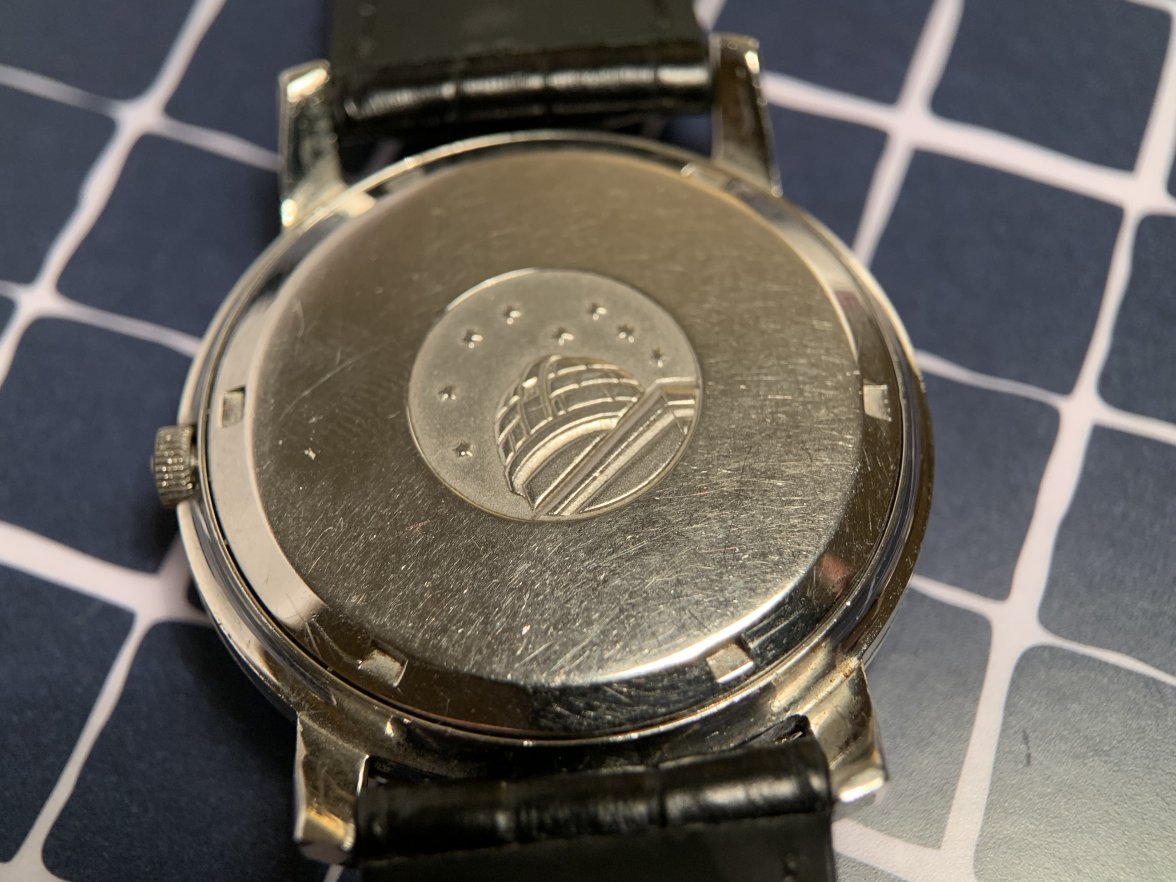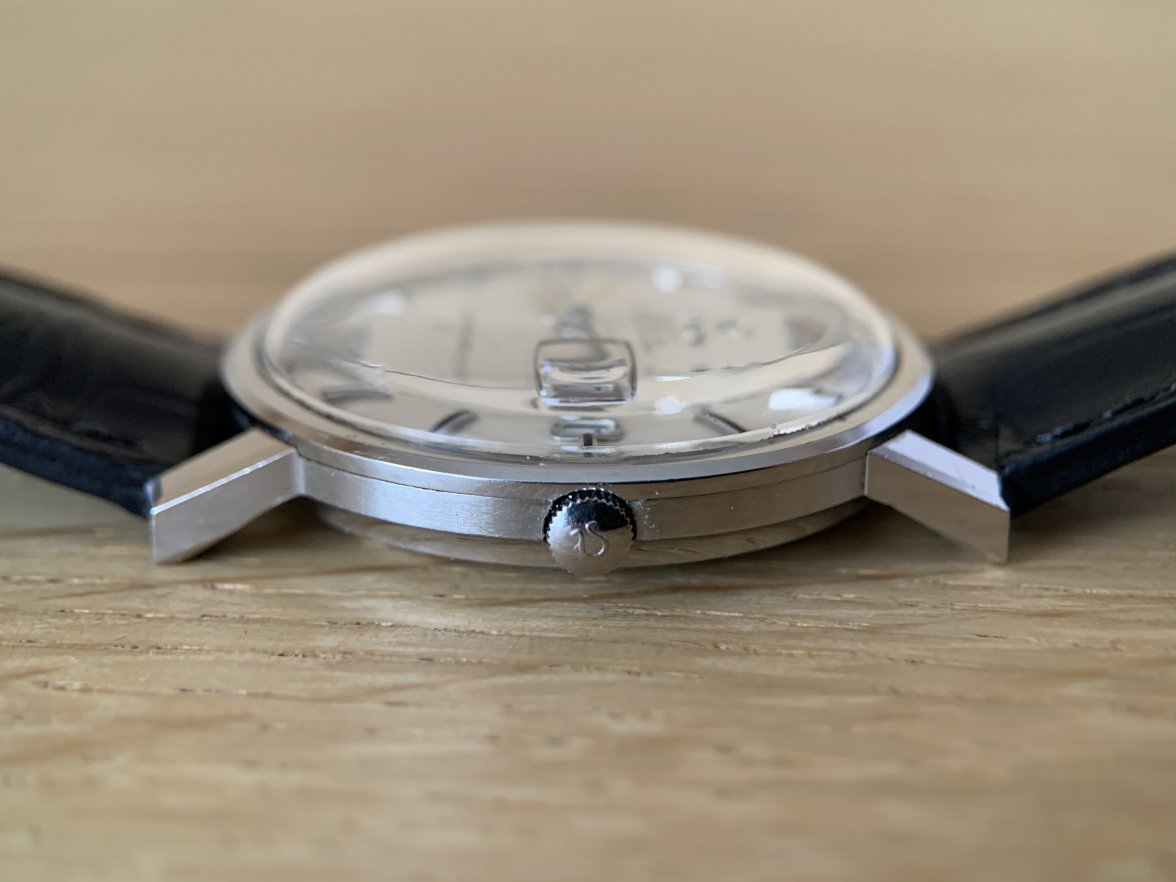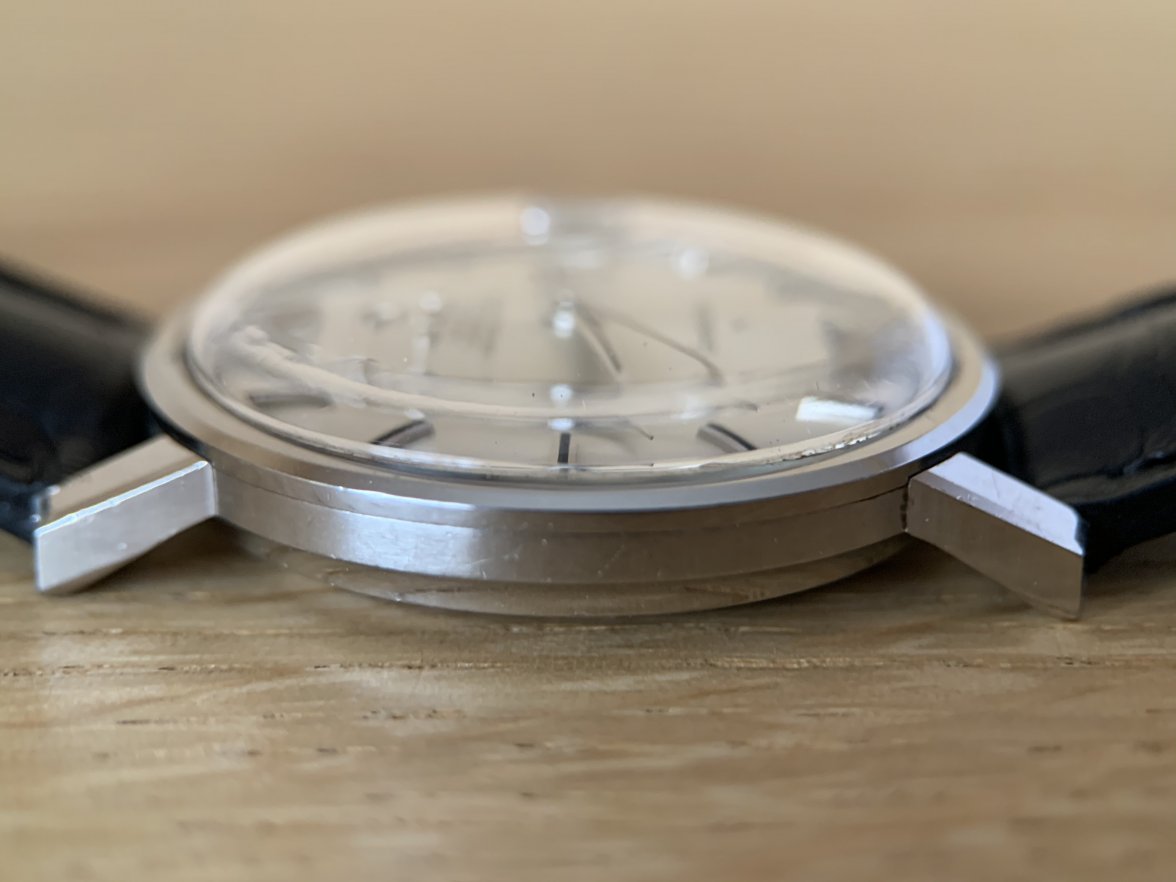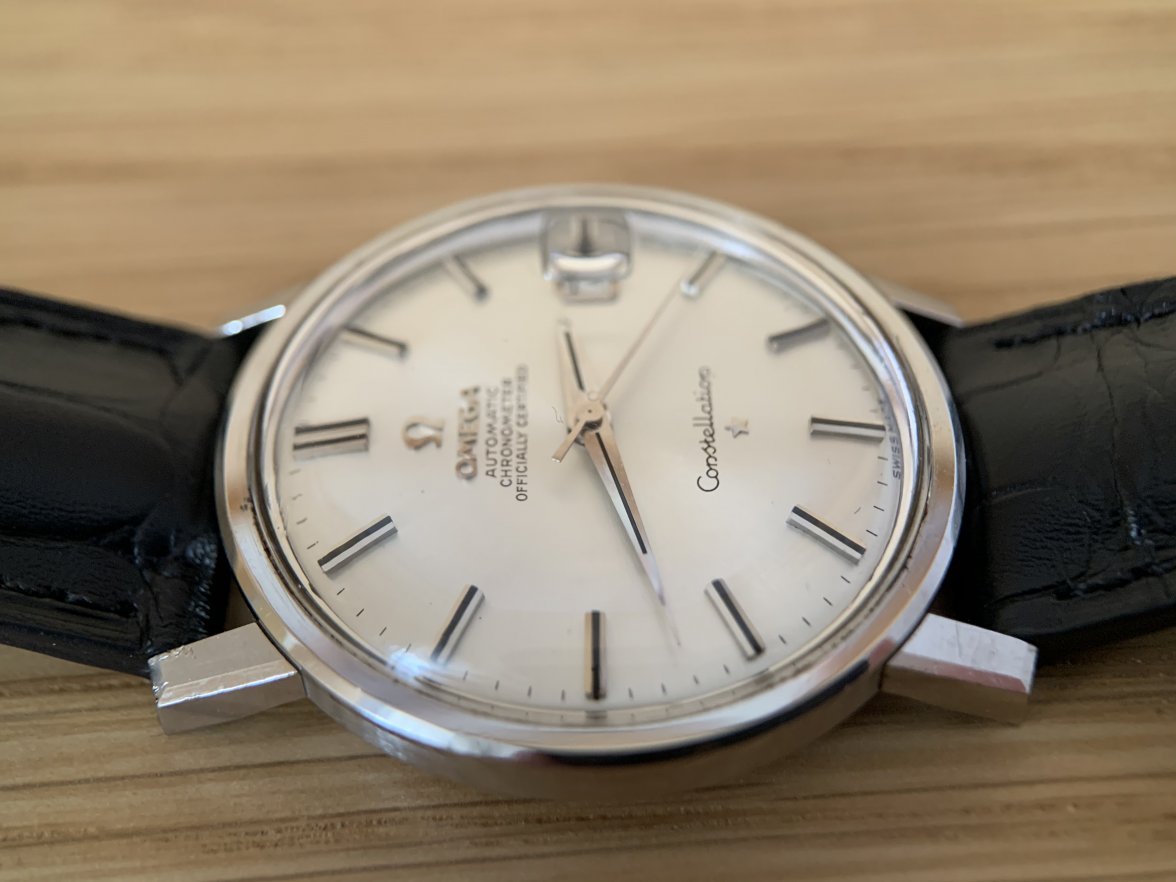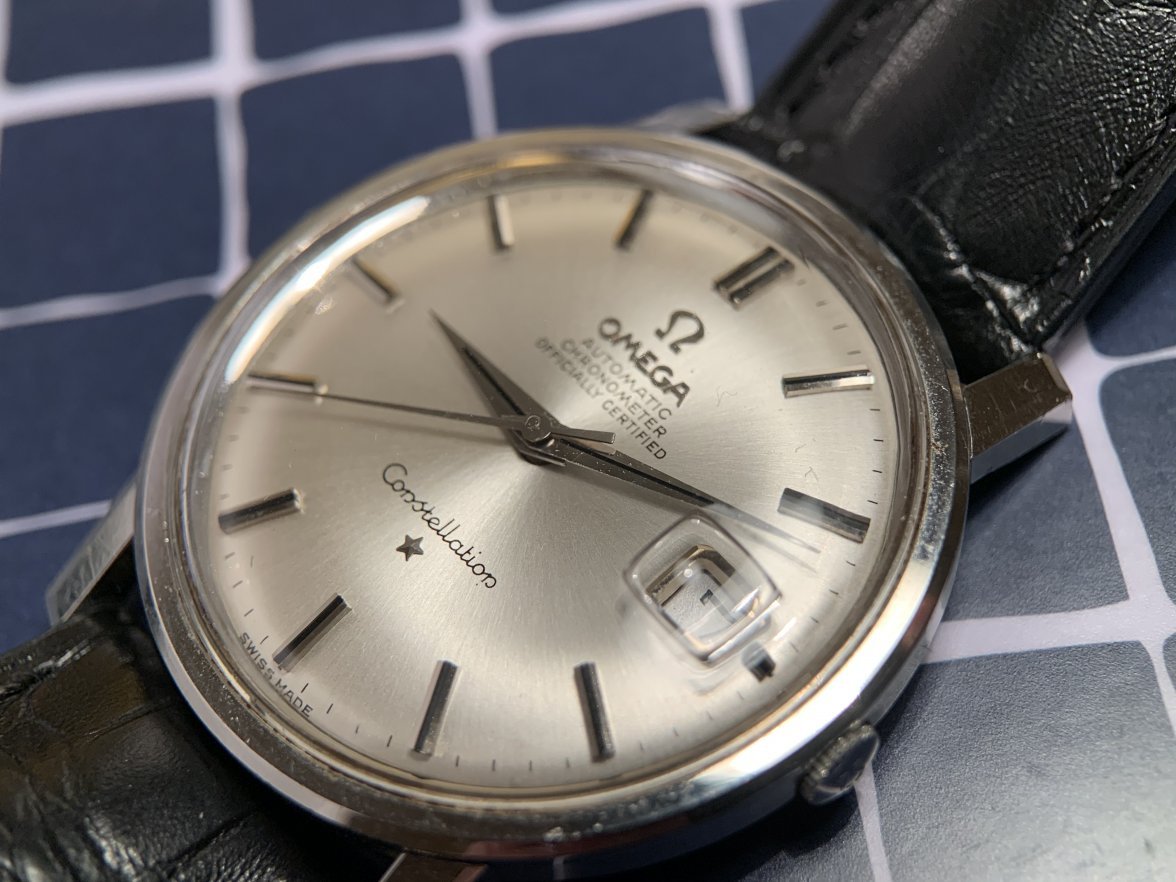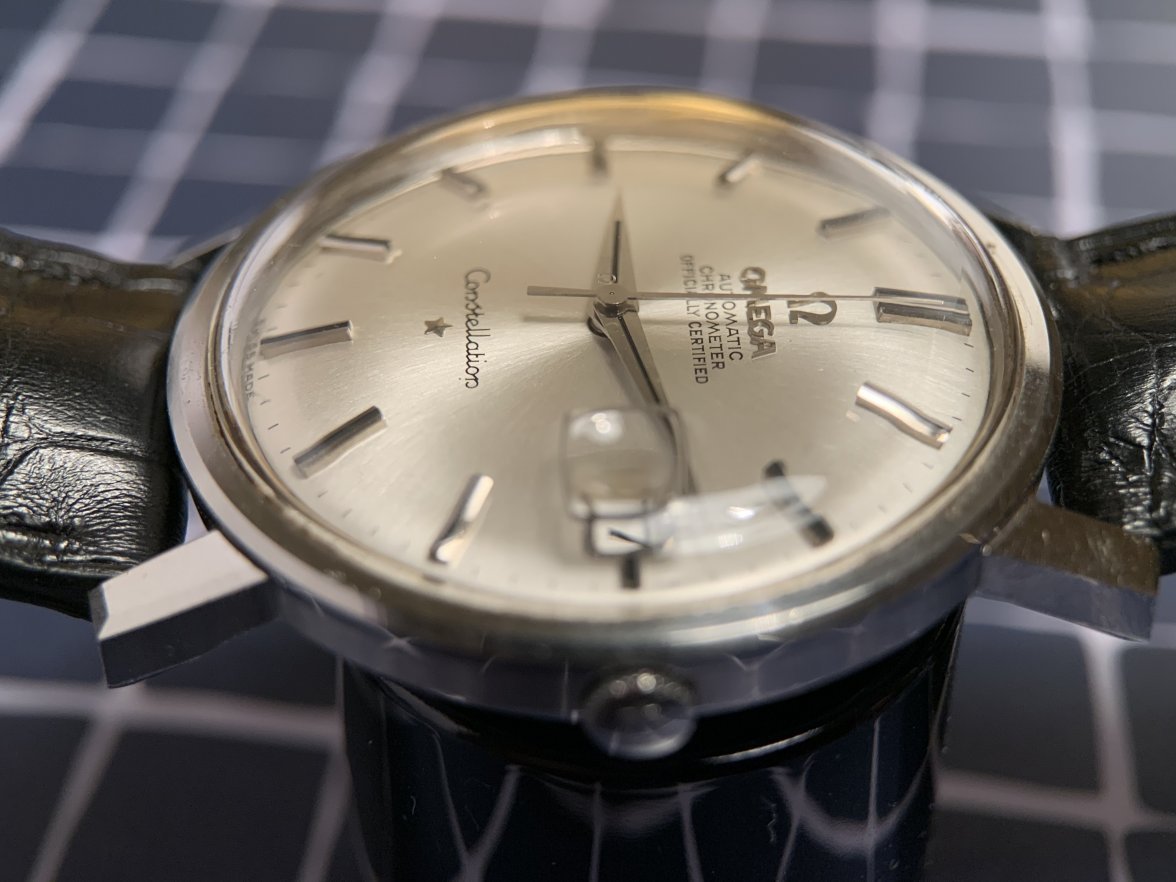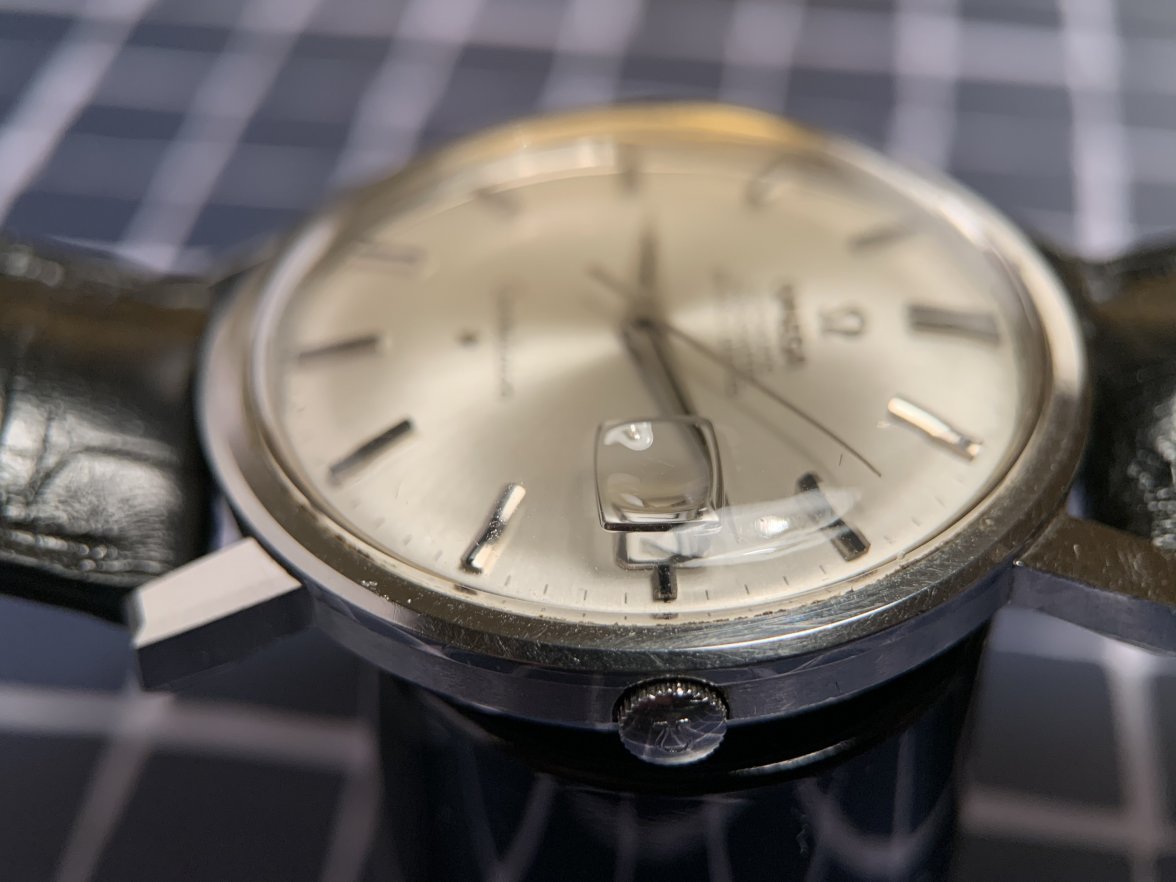Omega Constellation from 1966 : a mini-review
lawler
·Fantastic to read - you may have given me the Constellation bug!
ossfm
·A AsterOne of the (many) reasons why I fell in love for the Constellations of the 50s and 60s is the domed plexi crystal : the reflections are just extraordinary and I'm ready to give all the sapphire glasses of modern watches for the rendering of light through the plexiglass.
Boy you got that right!! I have a 168.010 form 1966 as well. The light can really get into the dial area and bounce around. I do love it. It seems that morning light is the best, within 30 minutes of sunrise. I don't know why but it really brings out the warm hues in a way evening light does not. Mine is gold capped with a champagne dial so the warm tones really work well.
The case on yours is in very good shape too.
Welcome to the forum!
Sgt_Bilko
·Boy you got that right!! I have a 168.010 form 1966 as well. The light can really get into the dial area and bounce around. I do love it. It seems that morning light is the best, within 30 minutes of sunrise. I don't know why but it really brings out the warm hues in a way evening light does not. Mine is gold capped with a champagne dial so the warm tones really work well.
The case on yours is in very good shape too.
Welcome to the forum!
You are right about those early morning tones. This is one I snapped a while back with my phone. Looking at the image I think I just put it on for the photo before adjusting the time. From memory it was about 7.30am.
Edited:
ChrisN
·What a testament to the quality of watches that Omega produced in that time frame (and later). I claim only a small input to such a result👍.
Keep well, Chris
- Posts
- 178
- Likes
- 292
Robbyman
·A AsterHello,
I'm a newcomer to this fantastic forum, but I know I will be welcomed !
I will try to do a quick and modest review of my latest watch acquisition, I have been enjoying for a few weeks now : an Omega Constellation from 1966, which appears, in my non-expert opinion, in a very good shape for its age ! (and sorry in advance for my sometimes approximate english because it's not my native language...).
I must confess that I've always had a weakness for these vintage Omegas from the 50s and 60s, which are very sober and of top class (it often goes together ) : so, I decided to take the plunge for my first vintage watch, and here is the result on my wrist (tmèses photos were taken rather quickly with a simple phone : therefore, they're not necessarily very artistic, at least not as much as many other great pics available on this forum !).
I must admit I've hesitated a lot before taking my decision to purchase a vintage Constellation, because of the numerous fake watches presented as authentic ones, more or less successful (and often dishonest) redials, franken watches, etc. In short, it's difficult to get started without having some basic knowledges to rule out questionable models (and, sometimes, sellers)… : so, many thanks to this great forum, I took the time to familiarize myself with the main characteristics of the different models, then I looked for a selling opportunity in the sales section, in order to have the most serene mind possible regarding its authenticity (a wonderful transaction with Shabbaz !) : I'd like to thanks very much all the contributors to this truly remarkable site, thanks to which I learned a lot ; and no doubt I will continue to do so !
This Constellation (model 168.010 from 1966) has a diameter of 35 mm, which is actually very different from what we can see today on most modern watches. I like the idea of a subtle and discreet watch, which slips easily under the sleeve of a shirt, compared to certain current watches which sometimes tends to be a little too much ostentatious (but it is a very subjective opinion and many will probably disagree 😀). And with my rather thin wrists (16.5cm), it goes without problem for me ! In the end, it was not so much the size that surprised me but the lightness of the watch: it's actually very strange to hardly feel the watch that you have on your wrist, even if you get used to it very quickly !
This Constellation has a magnificent silver sunburst dial, steel indexes with onyx inserts (although I never really got to see if they were really inserts or simply painting ; I understand that Omega made the transition between the two methods during the production period of this model), dauphine hands on the same model as the indexes, as well as a date at three o'clock. On the back, the traditional Genève observatory and these eight stars is proudly represented !
The whole watch is of great finesse, especially the inscriptions which are really of a subtlety that I had never seen before (all the more if you keep in mind that they are more than fifty years old). Obviously, the case (and in particular the lugs) has some scratches, but it's far preferable to a polished one : and they gave this watch an incredible charm !
Note in particular the 3.5mm crown which is partially hidden into the case: if the objective is undoubtedly to keep the watch the most refined silhouette possible, I must admit that it's not really easy to handle ... (and I don't have particularly thick fingers !). Fortunately, it's an automatic watch and I escape a daily winding ...
One of the (many) reasons why I fell in love for the Constellations of the 50s and 60s is the domed plexi crystal : the reflections are just extraordinary and I'm ready to give all the sapphire glasses of modern watches for the rendering of light through the plexiglass.
And, as a bonus, the presence of a dial lens, which I understand is not so common on Omega watches, provides a nice additional contrast ; and, of course, the Omega logo engraved in the center of the crystal !
This Constellation is equipped with an Omega 564 caliber: it's an automatic movement with a 50 hours power reserve, which still seems to be present today despite all the years gone by. The accuracy comes out at around -20sec per day (fully wound), which is very acceptable for a watch of this age and which could undoubtedly be improved during a next servicing.
Note the quickset date system, that I discovered on this occasion. In short, the crown has three positions: the first to manually wind the movement, the second for setting the time (so far, nothing very unusual) and a third allowing to advance the date by one day. So, to get to the right day, you have to pull the crown from position 2 to 3 then return to position 2, and start again as many times as necessary. To be completely honest, this device gives me cold sweats : the somewhat "brutal" day jump when you get to the third position, the tiny crown (it seems rather fragile for my fingers which are used to modern crowns), the whole mechanism over 50 years old ... So I'm very happy not to have to use it very often ...
And finally, I thought that a watch of this class deserved a strap as classic and sober as possible : a simple alligator strap in black leather, which corresponds to what fitted these watches at the time in the 60s. The only concession to modernity, a folding clasp rather than the traditional pin buckle ...
And voilà ! I could not be happier with this little treasure every day on my wrist and I see no reason why it should not continue !
